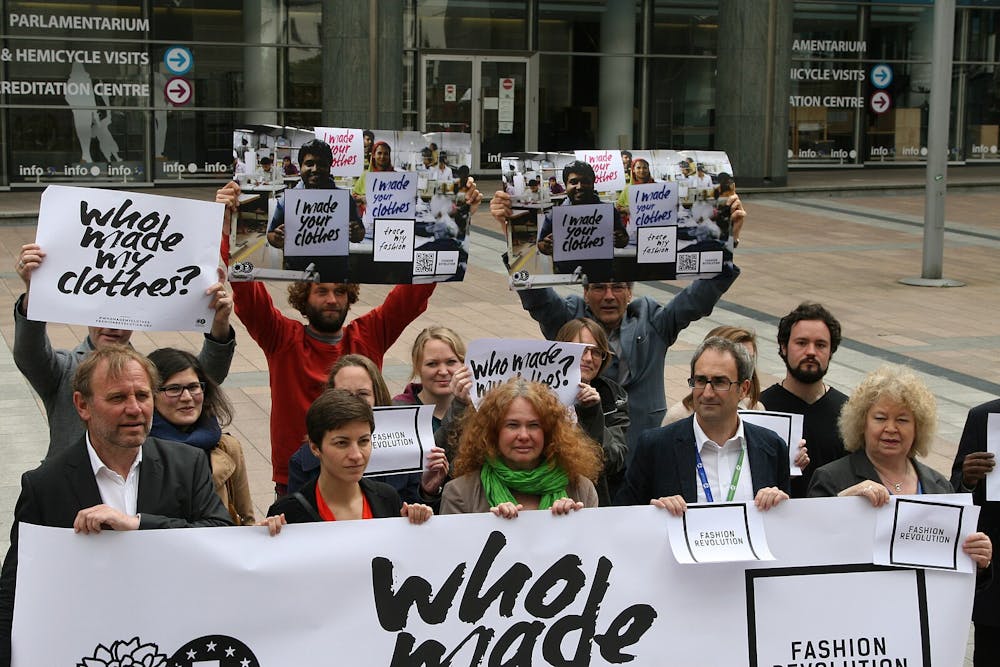By Brinda Patel
Correspondent
In recent decades, sustainable fashion has emerged to combat the depletion of organic resources and as a substitution for conventional mass production. With this, ethical labor practices, the elimination of microplastics and dyes, and innovative supply chains have been topics of conversation surrounding the fashion industry.
Sustainable fashion is rooted in practices like using specific fabrics, creating clothing that pairs well with every body shape and keeping comfort in style.
Many consumers seek out eco-friendly products to adopt a more sustainable lifestyle. Even as people become increasingly aware of how their clothing choices affect the environment, it is important to note that the days of overrated trends and “glamor” are not going anywhere anytime soon.
Although sustainable fashion is a notable category in the fashion industry, so is “fast” fashion. Fast fashion occurs when trends and cheap materials clash, with the resulting products hitting and exiting the marketplace rapidly. Popular fast fashion brands like H&M, Forever 21, Uniqlo and Shein are constantly working to meet the latest social trends. As a result, their clothes tend to be cheap and flimsy and wear out sooner than expected.
The trick of fast fashion is to make knockoff products inspired by designer brands. Fast fashion brands’ marketing strategy is to make customers feel rich without having to pay for luxury products. There’s nothing wrong with that—it’s every shopper’s dream. However, there are many unanswered questions and controversies surrounding such practices.
When a product is cheap, its price is reflective of its quality. Thus, it becomes disposable. It is time to rethink certain fast fashion choices.
A common question that proponents of sustainable fashion ask is whether these products are ethically manufactured. The more fast fashion there is, the more exacerbated the environment becomes. The production of this clothing releases methane, a powerful gas, in landfills and depletes vast amounts of valuable water and energy.
“Fast fashion is not free. Someone, somewhere is paying the price,” said British journalist and environmentalist Lucy Siegle.
Fast fashion promotes a culture of greed and labor exploitation. There are workers all across the world who have put their literal blood, sweat and tears into producing these cheap and disposable garments, and to make matters worse, they are exposed to dangerous chemicals and paid next to nothing.
A sad reality is the commonality for these types of workers to die in their respective facilities. In 2013, over a thousand employees lost their lives when a clothing factory, Rana Plaza, collapsed on them in the outskirts of Dhaka, Bangladesh. The collapse was caused by diesel generators going haywire, following a power outage. The infrastructure was falling apart for several years—many audits were dismissed without proper oversight.
Many fast fashion brands barely pay their workers an ethical living wage, and as a result, employees suffer for the means of their survival: basic living, food and related amenities. Their demise is due to the lack of a designated minimum wage. After the factory collapse caused a media frenzy, thousands of Bangladeshi garment workers quit their jobs and took to the streets in protest demanding fair wages.
By supporting brands that prioritize sustainability and ethical practice, we are one step closer to saving the environment before there’s no coming back. Embracing sustainability isn’t just about driving change in the fashion industry, it’s about making every thread count. Let’s choose a path of mindful consumption and redefine the meaning of fashion one garment at a time.







